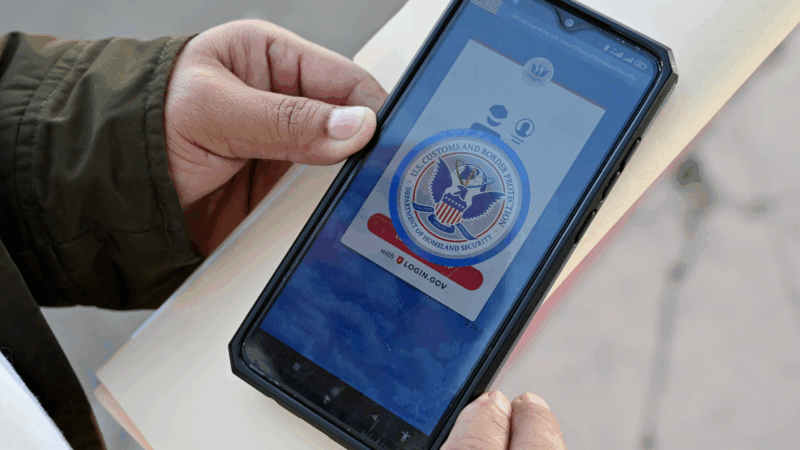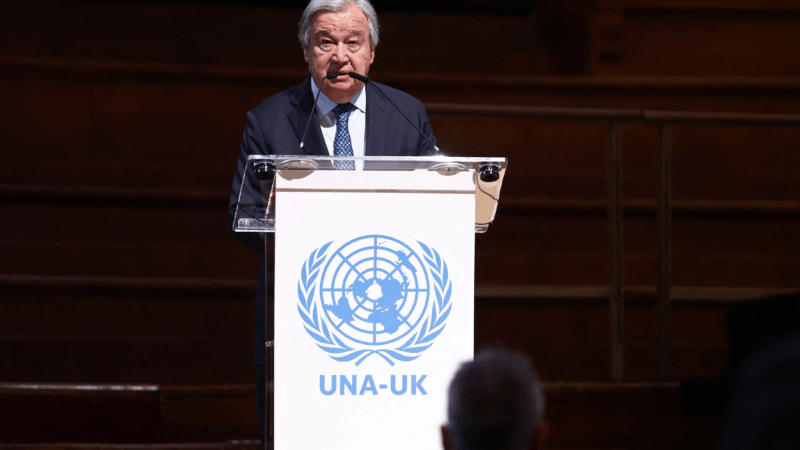Trump offers $1,000 incentive to migrants who leave the country voluntarily
The Trump administration announced it is offering a $1,000 incentive to migrants who “self-deport” using the CBP Home App that was once used to seek asylum.
The Homeland Security Department pitched the monetary incentive as a more cost-effective (for the government) and “dignified” way to leave the country. The department has been working to ramp up the speed and number of arrests, detentions and removal of immigrants without legal status over the last few months — a costly and resource-intensive endeavor.
The department estimates the average cost of arresting, detaining and removing someone without legal status amounts to around $17,121.
Immigration enforcement officials have noted that detention capacity is maxed out and the administration is seeking to streamline removals.
Trump’s border czar Tom Homan told Fox News on Monday that more than 7,000 people have used the app since it was rebranded from facilitating asylum requests to promoting removals.
Officials canceled asylum appointments on the app within hours of President Trump’s inauguration in January. The administration then launched a new effort last month that urged migrants to leave “immediately” using the app.
The administration is banking on the fact that migrants would rather leave the country than risk being arrested by immigration officials and face a fine — a choice many are now grappling with.
DHS also announced it has already used the monetary incentive once to transport someone from Chicago to Honduras. The agency added that people without legal status have booked additional plane tickets for this week and next.
But immigrant advocates are skeptical. Even if some people may take the administration up on their offer, immigration advocates say most don’t believe they will ever receive the incentive and eventually be able to apply for legal status, as the administration has suggested.
DHS did not respond to questions about how many people were set to be paid and how the incentive is issued.
There are some 11 million people without legal status in the country, according to estimates from 2022.
“They’re clearly out of touch with the reality that immigrant families and communities and individuals face in this country, and why they’re here in the first place,” said Esther Reyes, campaign strategist for the Protecting Immigrant Families coalition.
Reyes says families targeted by this messaging have long felt the threat of removal.
“A lot of the fear that communities feel has been around for a long time; particularly for people who are here without any kind of legal status, every day is a risk,” Reyes said. “Unfortunately, folks are used to the threats, whether small or large, that come their way on a regular basis.”
High-speed trains collide after one derails in southern Spain, killing at least 21
The crash happened in Spain's Andalusia province. Officials fear the death toll may rise.
United Nations leaders bemoan global turmoil as the General Assembly turns 80
On Saturday, the UNGA celebrated its 80th birthday in London. Speakers including U.N. Secretary-General António Guterres addressed global uncertainty during the second term of President Trump.
Parts of Florida receive rare snowfall as freezing temperatures linger
Snow has fallen in Florida for the second year in a row.
European leaders warn Trump’s Greenland tariffs threaten ‘dangerous downward spiral’
In a joint statement, leaders of eight countries said they stand in "full solidarity" with Denmark and Greenland. Denmark's Prime Minister Mette Frederiksen added: "Europe will not be blackmailed."
Syrian government announces a ceasefire with the Kurdish-led Syrian Democratic Forces
Syria's new leaders, since toppling Bashar Assad in December 2024, have struggled to assert their full authority over the war-torn country.
U.S. military troops on standby for possible deployment to Minnesota
The move comes after President Trump again threatened to invoke the Insurrection Act to control ongoing protests over the immigration enforcement surge in Minneapolis.







